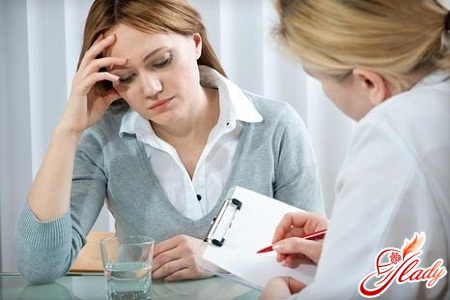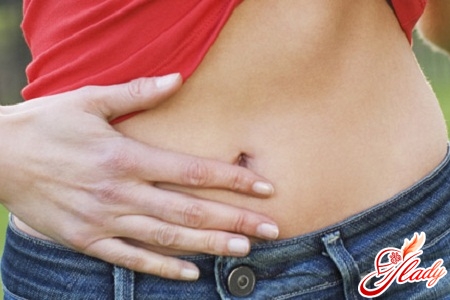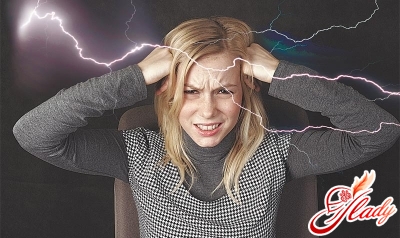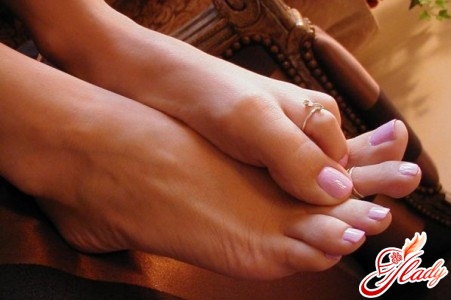 The most common complaint that is oftendoctors hear - this is pain in the stomach after eating. In order to solve this problem, you need to have a good idea of what functions the stomach performs, and what factors can lead to disruption of the normal functioning of the gastrointestinal tract. This, as well as how to alleviate the condition of a sick person, will be discussed in this article. As you know, the stomach plays a major role in the digestion process. Chewed food, through the esophagus, enters the stomach cavity. In the stomach, food mixes with the contents of the stomach - gastric juice. Gastric juice is produced by internal glands that are located in the mucous membrane of the stomach, which, in turn, is surrounded by gastric muscles. These glands produce about two to three liters of gastric juice per day. Gastric juice contains hydrochloric acid, which has an antibacterial effect and ensures the digestion of proteins, pepsin, which is also necessary for the successful digestion of food, and mucus, which is necessary to protect the mucous membrane of the stomach from the effects of hydrochloric acid. Simply put, gastric juice consists of protective and aggressive components, balanced in such a way that the stomach itself is not damaged. However, under the influence of various unfavorable factors, this balance can be disturbed. There are quite a large number of reasons that can provoke the development of certain stomach diseases. However, most often the cause of pain in the stomach is the food that a person eats. For example, intolerance to milk sugar or lactose often leads to bloating, diarrhea, and most importantly - to spastic pain. Fatty foods can lead to the occurrence of voles in the gallbladder, and excessively hot or cold food causes pressing or bursting pain.
The most common complaint that is oftendoctors hear - this is pain in the stomach after eating. In order to solve this problem, you need to have a good idea of what functions the stomach performs, and what factors can lead to disruption of the normal functioning of the gastrointestinal tract. This, as well as how to alleviate the condition of a sick person, will be discussed in this article. As you know, the stomach plays a major role in the digestion process. Chewed food, through the esophagus, enters the stomach cavity. In the stomach, food mixes with the contents of the stomach - gastric juice. Gastric juice is produced by internal glands that are located in the mucous membrane of the stomach, which, in turn, is surrounded by gastric muscles. These glands produce about two to three liters of gastric juice per day. Gastric juice contains hydrochloric acid, which has an antibacterial effect and ensures the digestion of proteins, pepsin, which is also necessary for the successful digestion of food, and mucus, which is necessary to protect the mucous membrane of the stomach from the effects of hydrochloric acid. Simply put, gastric juice consists of protective and aggressive components, balanced in such a way that the stomach itself is not damaged. However, under the influence of various unfavorable factors, this balance can be disturbed. There are quite a large number of reasons that can provoke the development of certain stomach diseases. However, most often the cause of pain in the stomach is the food that a person eats. For example, intolerance to milk sugar or lactose often leads to bloating, diarrhea, and most importantly - to spastic pain. Fatty foods can lead to the occurrence of voles in the gallbladder, and excessively hot or cold food causes pressing or bursting pain.
Irritable Stomach Syndrome
One of the most common reasons iscausing stomach pain after eating is irritable stomach syndrome. It occurs periodically in about 80% of all people. However, it should never be confused with gastritis of the stomach - despite the fact that their symptoms are similar, these are completely different diseases. So, the symptoms of irritable stomach are:
- Often repeating nausea, which occurs for no apparent reason. And there is a feeling of nausea, usually immediately after eating.
- Presence of burping in the first hour after eating. And pay attention - only a multiple eructation is taken into account, but not a single one.
- The feeling of heartburn, arising after the intake of any food, even neostroy and lean.
- The appearance of gastric spasms in the first hours after eating.
- The feeling of heaviness in the stomach, appearing in the first hours after the person ate.
- In especially severe cases, if a person does not consult a doctor and take the necessary measures to eliminate this stomach disease, even a significant loss of body weight is possible.
Reasons that can lead to developmentсиндрома раздраженного желудка, не так уж и много – как правило, это употребление определенных продуктов питания. К ним относится чрезмерно острая, жирная, соленая пища, переварить которую очень тяжело. И вполне естественно, что первое, что необходимо сделать при появлении одного или нескольких вышеперечисленных симптомов – это обратить пристальное внимание на свой рацион питания. Все продукты питания должны быть максимально натуральными и диетическими. В том случае, если боли в желудке сопровождаются чувством тяжести и переполненности желудка, вовсе не лишним будет помочь желудку, стимулировав желудочно – кишечную перистальтику. Для этих целей народная медицина рекомендует использовать различные горькие травы, например, бенедикт аптечный, золототысячник, аир обыкновенный, горький клевер. Данные травы необходимо заваривать следующим образом – на 500 грамм воды необходимо взять одну столовую ложку любой из вышеперечисленных трав. Траву необходимо заварить так же, как обыкновенный чай. Принимать ее необходимо по одному стакану два раза в сутки, до тех пор, пока чувство дискомфорта и болевые ощущения не исчезнут полностью. В том случае, если болевые ощущения сопровождаются повышенным газообразованием (метеоризмом), больной человек может приобрести в аптеке специальные фармакологические препараты. А можно обойтись и подручными средствами: приобретите в аптеке такую траву, как анис, фенхель, ромашка или тмин. Поместите одну столовую ложку сырья в термос, залейте двумя стаканами крутого кипятка. Настаивайте примерно два часа, после чего настой процедите при помощи марлевой ткани. Принимать настой необходимо по одной чайной ложке каждые два часа. Практически во всех случаях облегчение наступает уже на вторые сутки. В том же случае, если боли в желудке сопровождаются появлением изжоги, есть все основания подозревать, что у больного человека имеет место быть гастроэзофагальный рефлюкс. При подобном нарушении в пищевод человека попадает соляная кислота из желудка. Под воздействием соляной кислоты происходит раздражение пищевода и его воспаление, которые и приводят к возникновению чувства изжоги. Для того чтобы устранить это ощущение, необходимо приобрести антацидные препараты, которые продаются в аптеке без рецепта врача. Подобные препараты, как правило, содержат в своем составе кальций, магний или алюминий. Эти вещества понижают кислотность желудка и обволакивают слизистую оболочку пищевода, защищая ее. Очень многие люди пытаются избавиться от досаждающего им чувства изжоги, принимая внутрь обыкновенную пищевую соду. И действительно – чувство облегчения на некоторое время действительно будет. Однако врачи крайне не рекомендуют использовать этот способ. И это неудивительно. Попробуйте провести следующий опыт. Налейте в кружку немного воды и добавьте в нее столовую ложку уксуса. После этого всыпьте немного соды. То же самое происходит и в вашем желудке. В результате у человека появляется отрыжка, метеоризм и вздутие живота, а кроме того, слизистая оболочка желудка может начать изъязвляться. Единственным допустимым подручным средством является обыкновенный мел. Очень многие люди единодушно утверждают, что обыкновенный белый мел, без каких – либо добавок. Достаточно просто сжевать небольшой кусочек – и изжога надолго исчезает. Ну и, разумеется, нельзя забывать о необходимости соблюдения лечебной диеты. Помните о том, что острая, солена, копченая и жирная пища способны спровоцировать развитие сильнейшей изжоги даже у здорового человека, не говоря уж про тех людей, которые страдают от гастроэзофагального рефлюкса. Во время обострения синдрома раздраженного желудка показана строжайшая диета: первые сутки больной человек должен пить только некрепкий черный чай, есть в этот день нельзя ничего. На вторые сутки можно начать пить кисели, на третьи сутки – есть сухари. И только на четвертые сутки в рацион больного человека можно вводить каши на воде и супы. В последующем необходимо помнить о необходимости соблюдения диеты. Для того чтобы устранить чувство распирания и слабые болевые ощущения, можно воспользоваться влажным теплом. Смочите в теплой (но не горячей) воде махровое полотенце, оберните им грелку, также наполненную теплой водой, и положите на область желудка. Кстати говоря, если у вас дома нет грелки, ее можно заменить обыкновенной пластиковой бутылкой, наполненной теплой водой. Компресс оставить можно столь долго, как это необходимо для того, чтобы исчезли болевые ощущения. Разумеется, по мере остывания компресс необходимо менять. Кроме того, очень эффективно снимает раздражение слизистой оболочки желудка обыкновенная аптечная ромашка. Помимо всех своих положительных свойств, аптечная ромашка обладает сильнейшим противовоспалительным действием. Аптечную ромашку необходимо заваривать как обыкновенный чай, и давать пить больному человеку. Единственное условие, которое необходимо соблюдать – это пить настой ромашки без сахара, так как сахар очень сильно ослабляет противовоспалительное действие. А, кроме того, чай из аптечной ромашки очень эффективно борется с желудочными бактериями. Кстати говоря, эти бактерии также зачастую становятся причиной развития синдрома раздраженного желудка. Иногда при синдроме раздраженного желудка дела обстоят еще хуже. Слизистая оболочка желудка может изъязвляться – на ее поверхности появляются ранки небольшого размера, которые могут кровоточить. Как правило, подобное явление наблюдается после приема тех или иных фармакологических препаратов – чаще всего жаропонижающих или обезболивающих. Именно поэтому врачи рекомендуют запивать все лекарственные препараты молоком. Разумеется, в том случае, если человек не страдает от индивидуальной непереносимости молока. И обязательно всегда обращайте внимание на аннотацию к лекарственным препаратам – если в ней указано, что прием лекарства должен быть вместе с едой – значит так и принимайте. В особо тяжелых случаях из-за кровоточащей слизистой оболочки в желудке скапливается определенное количество крови. И в результате у человека может начаться приступ рвоты, а в рвотных массах можно наблюдать алую, еще не свернувшуюся кровь. А если же кровь уже успела свернуться, в рвотных массах могут содержаться коричневые сгустки запекшейся крови. А порой у больного человека может измениться и цвет стула, вплоть для черного. Во всех подобных случаях сам больной человек или его родственники должны как можно быстрее обратиться за медицинской помощью к врачу, так как подобные симптомы могут появляться и в том случае, если у человека началось серьезное желудочное кровотечение – например, в результате язвы желудка. Кстати говоря, существует несколько простых, но очень действенных советов того, как снизить риск развития синдрома раздраженного кишечника. О необходимости соблюдения диеты во время обострения и правильного, здорового рациона питания в целом мы уже говорили. Однако не стоит также забывать и про движение. При отсутствии необходимой физической нагрузки очень быстро развивается расстройство различных систем организма – в том числе и пищеварительной. Для их предотвращения врачи рекомендуют после каждого приема пищи не садиться в течение хотя бы десяти минут. Пройдитесь немного, вымойте посуду – это не только снизить риск развития нарушений работы желудочно – кишечного тракта, но и поможет избежать лишнего веса. Кроме того, при всех заболеваниях желудка крайне важно правильное время приема пищи. Зачастую человек весь день ходит голодным, либо перекусывает всухомятку, а вечером. Возвращаясь домой, съедает сразу же большой объем пищи. Однако подобный режим питания – это прямой путь сначала к развитию синдрома раздраженного желудка, затем гастрита, а после и вовсе – язвы желудка. Врачи рекомендуют принимать пищу небольшими порциями, но и промежуток между приемами не должен быть слишком большим — не больше трех часов. Разумеется, далеко не всегда и не у всех есть подобная возможность – однако не забывайте о том, что еду можно брать с собой из дому, а не покупать фаст – фуд. Обратите особое внимание и на то, как именно вы едите. Помните о том, что пищу необходимо тщательно пережевывать. А еда «на бегу» приведет к тому, что в полость желудка попадут крупные куски непрожеванной пищи, которые могут травмировать не только пищевод, но и слизистую оболочку желудка. 
Stomach ulcer
Another reason why a person canexperience pain in the stomach after eating, can be a peptic ulcer. The ulcer of the gastric mucosa in this case is localized in the upper parts of the stomach. Pain in such cases, as a rule, occurs in the first half hour - an hour after eating. At first, the pain is mild, however. As the food is digested, the pain increases significantly, often becoming completely unbearable. This occurs as a result of increased production of hydrochloric acid, which occurs as a result of the digestion process. Gradually, as the food is digested and enters the duodenum, the pain disappears until the next meal. With ulcerative diseases of the gastrointestinal tract, pain is very specific. So, with gastric ulcer, pain occurs either on the left side of the abdomen or in the middle. But if the ulcer has affected the gastric mucosa, pain occurs on the right side of the abdominal cavity. In particularly severe cases, the pain may even radiate to the back. The pain itself can be very diverse - pulling, aching, sharp or cramping.
Gastroduodenitis
Another reason for the occurrence of painsensations in the stomach after eating is a disease such as gastroduodenitis. To some extent, this disease is similar to gastric irritation syndrome. However, in this case, there is not just irritation, but also severe inflammation of the gastric mucosa. In addition, the duodenum is also involved in this process. This disease causes a lot of unpleasant minutes, and the treatment of the disease also takes quite a long time. Gastroduodenitis can last for several months, then subsiding, then worsening again. Pain with this disease is periodic, sometimes quite intense. Pain is localized in the epigastric region and around the navel. In almost all cases, pain occurs in the first hour after eating. In some cases, a sick person, in addition to pain, may complain of heaviness in the abdomen and a feeling of distension in the upper abdomen. Often there is belching with a sour taste.
Pylorospasm
This condition is characterized by spasmsthe pylorus, which is located at the exit from the stomach into the duodenum. Most often, this disease occurs in those people who suffer from various neuroses and other disorders of the central nervous system. With pylorospasm, a person begins to experience severe pain in the epigastric region about 15 minutes after eating. After about half an hour, a person begins to vomit severely and repeatedly. Both pain and vomiting in a person will continue until the stomach cavity is almost completely emptied. And such attacks are repeated almost after every meal. In this case, you can not hesitate - a sick person should seek medical help as soon as possible. With this disease, food is practically not absorbed, as a result of which a person loses weight very quickly. And in the absence of professional medical care, dehydration of the body and subsequent general exhaustion of the patient's body can very quickly develop.
Inflammation of the gallbladder
It is also often the cause of painsensations soon after eating are caused by various inflammatory processes of either the gallbladder itself or the biliary tract, such as angiocholitis or cholecystitis. In addition, various dyskinesias of the gallbladder can also provoke the occurrence of painful sensations. Most often, painful sensations in these diseases are localized in the area of the right hypochondrium. Most often, the occurrence of such signs occurs after eating a certain group of products. Such products include smoked, salted and fatty foods, as well as fatty sweets - ice cream, milkshakes, halva, chocolate. That is why it is extremely important to follow a very strict diet for various diseases of the gallbladder and biliary tract. In order to diagnose these diseases, when the above symptoms appear, the patient should consult a doctor - a gastroenterologist, and in his absence - a therapist.
Pancreatitis
Pancreatitis is an inflammation of the pancreasglands. The main symptoms of this disease in a person are severe pain in the abdomen, which occurs shortly after eating. The localization of pain may be different - either in the right hypochondrium, or, in especially severe cases, when the entire area of the pancreas is affected, the pain is of a girdle nature. With this disease, self-medication is also in no way allowed, since the consequences can be completely unpredictable, sometimes very sad - up to the development of a shock state or even death of the sick person. That is why at the first signs of the disease, the sick person must receive qualified medical care.
Irritable Bowel Syndrome
Irritable stomach syndrome has already been discussed.above. However, we cannot fail to mention another syndrome - irritable bowel syndrome. This syndrome develops if, under the influence of certain factors, irritation of the intestinal mucosa occurs. This disease is characterized by the occurrence of pain approximately an hour after eating. In addition, a sick person may experience such disorders as bloating, flatulence, stool disorders - constipation or diarrhea. As a rule, pain almost completely disappears after defecation. In any case, if you experience stomach pain after eating, medications will not be your only panacea. Incorrectly selected pharmacological drugs can only worsen the course of the disease. In order for medications to help, a sick person must consult a doctor. The doctor will prescribe the necessary examination, based on the results of which the disease will be diagnosed and, accordingly, an appropriate course of treatment will be selected. Well, of course, in no case should you forget about your diet. No medicine, even the most expensive one, can alleviate the condition of a sick person and eliminate the disease itself if the diet is inadequate. We recommend reading:









